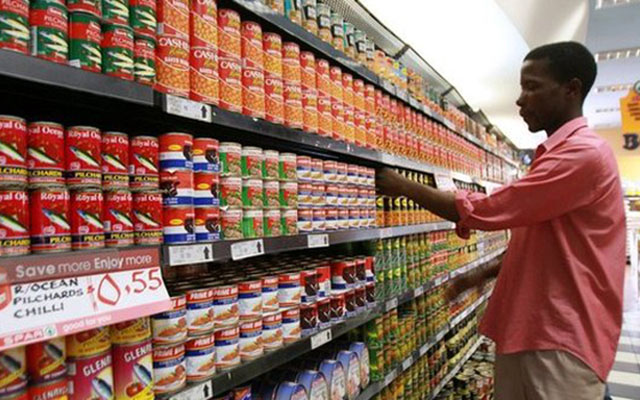Consumers: Forgotten cog in pricing matrix


It is worrisome that consumers continue to be made sacrificial lambs, paying a premium for goods and services they should otherwise procure for much less
Victoria Ruzvidzo In Focus
Prices of goods and services have continued to rise over the past few weeks as the nation awaits results of investigations launched a few weeks ago to ascertain the causes of the price hikes. What is worrying is the fact that consumers continue to be made sacrificial lambs, paying a premium for goods and services they should otherwise procure for much less.
The Government and its private sector counterparts have condemned the price hikes as unjustified, but in the interim the consumer continues to face the vagaries of the unabated increases. While many shops reduced prices, some of which had doubled in one day a few weeks ago, they had not revised to previous levels. In fact the prices continue to rise not sharply, but subtly. This has had an adverse impact on the economy.
In almost all sectors of the economy, it had become a daily or weekly ordeal that prices are changing each time one goes to purchase something, be it food, bricks, vehicles and other products and services. We would have expected interim results of investigations that Government launched together with the Consumer Council of Zimbabwe a few weeks ago so that a redress can be made.
While producers and some retailers may have justifications in some instances, the general price hikes are not informed by fundamental price determinants, but the general greed and super-profits mentality that has remained evident in the economy from the days of hyperinflation. The tendency to maximise on a situation, or to exaggerate effects of a scenario such as the prevailing shortage of foreign currency continues to harm consumers, leaving them almost helpless.
It is not a secret that foreign currency shortages have had an effect on the economy, but even in stances where some firms access it from the central bank, they continue to increase prices, implying that they are victim to the black market rates that are very high. Furthermore, those that procure most of their inputs locally insist that the replacement value of stock has gone up, hence, they increase prices in anticipation of higher input costs in future. Of course companies are in business to make profits, but they should consider circumstances of the stakeholders that they intend to serve.
If consumers are cheated for long they will one day resist such moves and boycott a product or services. There are not too many examples of such a stance in Zimbabwe, but next door, people literally go onto the streets to force a review of any price increase they determine to be unfair, never mind presentation of a seemingly credible justification.
They will just not have and will go on a rampage until their voice is heard. Of course we do not advocate such behaviours not to say consumers should be taken for a ride. The need to put a check to the price increases cannot be over-emphasised. We are all too aware of the challenges that firms continue to face, but they should not just pass the buck to the consumers. Instead, they should find ways to absorb the costs by applying more cost-effective production processes.
The September inflation figure rose to 0,78 percent from 0,14 percent due to price increases. The frightening bit is that the figure does not factor in the full effect of the price wave of a few weeks ago. This will be carried in the October inflation. Your guess is as good as mine on what levels to expect. A 0,64 percentage points increase is not a small one. It is quite telling in terms of the inflationary pressure build-ups in the economy. The generality of Zimbabweans are still to recover from the trauma of the hyper-inflationary environment of the 2007-2009 era, and would not what another dose of such magnitudes.
But avoiding such is a responsibility of all of us. Inflation simply means the rate at which prices go up. The past few months have seen prices rising at a pace harmful to the economy.
“It is important to note that the September survey was carried out before the period of price increases and these price increases will be reflected in the October 2017 survey and released in the October 2017 CPI figures on November 15, 2017,” warned the Zimbabwe National Statistics Agency. We thus commend such firms as Delta Corporation that has warned its downstream suppliers of its produce that they will not be allowed to increase prices despite submissions of justification.
The company’s supply chain director Mrs Cynthia Malaba has told suppliers that an increase will not be sanctioned, but that the suppliers should look at their value chain and see how best they can contain costs, instead of the easier route of just passing the cost to the consumer. We need such corporate citizens, who understand the importance of a satisfied customer and the need to protect the consumer from vagaries of the economy.
“Recently, a number of suppliers have approached us with proposed increases motivated by difficulties in sourcing foreign currency,” wrote Mrs Malaba. We would like to advise our valued suppliers as follows: We are unable to take selling price increases on our beverage portfolio. Instead, we are continually searching for ways to improve our value chain to make our products more affordable to our customers.
“We urge business partners to carefully manage their value chains with particular focus on competitiveness as we are unable to absorb any input price increases outside the negotiated parameters. We value our relationship with yourselves as our suppliers. In the event that you cannot manage price and quality at agreed levels, we please request that you give us sufficient warning to enable us to make alternative arrangements,” wrote Mrs Malaba.
This is highly commendable and should be emulated by all firms, many of whom demonstrate the desire to punish the consumer for being loyal to them. Consumers and producers are supposed to find an equilibrium in the pricing matrix, but the system becomes skewed and untenable, if producers fail to meet their end of the bargain, hence adversely impacting the consumer’s welfare. We are indeed keen to see what has come out of the investigations on the price increases.
The central bank is providing foreign currency for firms. Although this is still far from being adequate, we expect to see the benefits of the funds that have been availed. The market needs to be watched closely. Up to this day we still witness instances where some service providers are refusing plastic money and mobile money transactions. Many now hide behind “the system is down” mantra. This should not be allowed to persist.
In God I Trust!










Comments